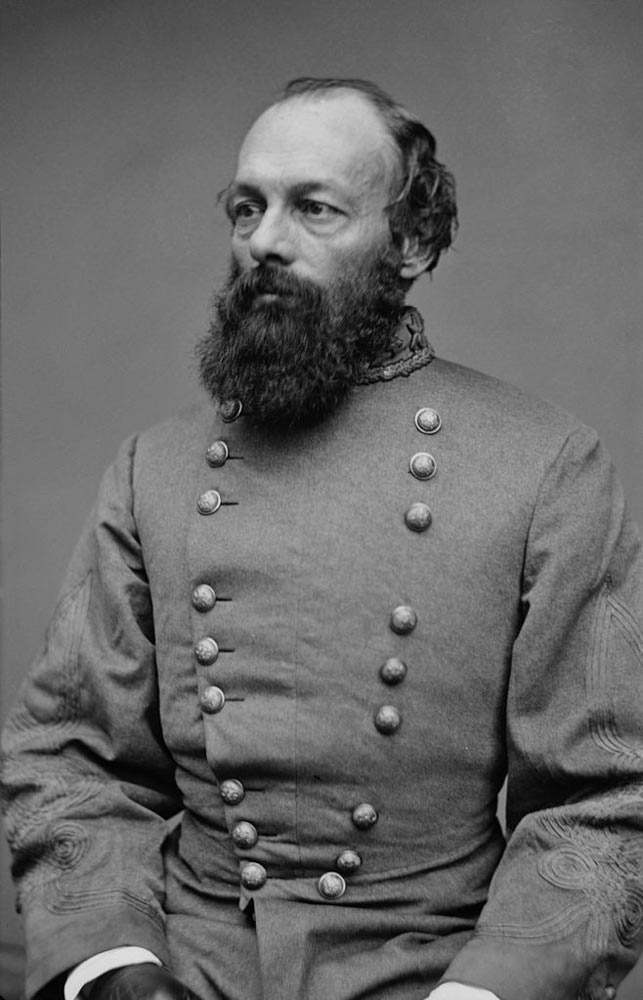| Edmund Kirby Smith | |
|---|---|
 |
|
| Born | May 16, 1824 St. Augustine, Florida |
| Died | Mar. 28, 1893 (at age 68) Sewanee, Tennessee |
| Allegiance | United States of America Confederate States of America |
| Years | 1845–61 (USA) 1861–65 (CSA) |
| Rank | Major (USA) General (CSA) |
| Battles/wars | Mexican-American War American Civil War |
Edmund Kirby Smith was an American soldier who rose to the rank of general with the Confederate States Army during the American Civil War. He was born in 1824 in St. Augustine, Florida, the son of a U.S. District Judge. He joined the army in 1841 as a cadet in the U.S. Military Academy at West Point. After four years of military training, he graduated as a temporary (brevetted) second lieutenant, before being appointed a permanent second lieutenant the following year.
Service in the Civil War
Smith joined the Confederate Army in 1861. Although he joined the artillery with the rank of major, he was immediately promoted to lieutenant colonel and moved to the cavalry. After a short period of service in the Shenandoah Valley under Brigadier General Joseph E. Johnston, he was promoted to brigadier general and made a brigade commander in the Army of the Shenandoah.
In his first major conflict, he led his brigade in the First Battle of Bull Run in July 1861. During the battle, he was wounded and was out of action for nearly three months. During his recovery, he returned to Florida where he was made commander of the Department of Middle and East Florida. In October, he returned to the Civil War front as a major general, commanding a division of the Army of Northern Virginia.
Smith was transferred to the Army of East Tennessee in February 1862, where he took part in the attempted invasion of Kentucky. Following his success at the Battle of Richmond in Kentucky, he was promoted to the rank of lieutenant general.
Trans-Mississippi Department
In January 1863, Smith was once again transferred, this time west of the Mississippi to take command of the Trans-Mississippi Department, which was made up mainly of Texas, Western Louisiana and Arkansas. He was stationed there for the remainder of the Civil War, where he became virtually cut off from the main Confederate forces. He had about 30,000 men under his command, but these were spread over a huge area, which greatly restricted any opportunities for him to challenge the Union forces.
He recorded victories over the Union Army at the Battle of Mansfield in April 1864, and successfully took part in blocking a Union attempt to advance into Arkansas. He then tried to send some of his troops as reinforcements to join other Confederate forces east of the Mississippi, but failed because the Union forces controlled the river. Following the failure, he sent his cavalry troops, under the command of Major General Sterling Price, on an abortive attempt to invade Missouri. His troops were to see very little action for the rest of the War.
Surrender
Edmund Kirby Smith was promoted to general in February 1864. As commanding officer, he negotiated the surrender of his troops, his army being the most intact of all Confederate armies. On May 26, 1865, after signing the surrender documents, Smith went to Mexico and then to Cuba to avoid the possibility of being tried for treason. He returned to America the following year under an amnesty agreement, where he lived until his death in 1893.